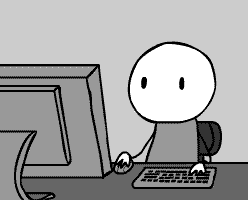“It’s like he had to show me a negative so that I could see the positive.” (Bryan Fuller, Hannibal)
“Co-pilot” is assumed by most fans to be the worst episode of The Shield, and it is; it’s not so much that it’s bad in and of itself, it just goes against everything that makes the show great.
Outside of a few moments in the first two episodes, The Shield holds to absolutely linear storytelling. More than that, there are very few references to events that happened before the pilot. (Aceveda’s college girlfriend last season is one of the only exceptions to this.) We began with an original action (Vic killing Terry), and we’ve been seeing how that plays out: no explanations, no justifications, only consequences.
“Co-pilot” breaks with this. The Shield has little interest in psychology; there is nothing about how people “got that way” (to use another Hannibal line, this one from Thomas Harris: “Nothing happened to me, Agent Starling. I happened.”) There is only the assumption that good, bad, corrupt, innocent, smart, stupid, valiant, cowardly, arrogant, etc. qualities all exist–some people are like Vic, some are like Shane, some are like Danny, Dutch, Claudette, so forth. In drama, we see how these people interact and conflict but we don’t see their lives before or after the action. That is why, as Aristotle sez, drama is universal; it’s about the consequences of arrogance, greed, folly, etc., not about what happens to a particular arrogant or greedy or foolish person. (Part of what’s so goddamn powerful about The Shield’s pilot is that there is no attempt to explain how the Strike Team got corrupted; in fact, there’s no assumption that they got corrupted. They just are like this, and we’re going to follow them. It’s so fucking boring here that the Strike Team wanted to do things “the right way,” but darn it, they made one compromise, and everything changed.)
“Co-pilot” not only tries to answer these question of “how did [character name here] get that way?” it tries to answer all of the questions in 45 minutes. As Shawn Ryan, Joss Whedon, and a lot of other people have noted, the great advantage of TV is that you have time to set everything in place. You can set up plot points and pay them off over hours of broadcast time and years of narrative time, so you can actually tell a story. “Co-pilot” tries to explain not just the corruption of the Strike Team, but also Terry’s friendship with Aceveda AND Julien’s innocence about policing AND Julien’s homosexuality (fuck you Dylan McDermott, give me some Kenneth Johnson man ass any day), AND Vic’s early relationship with Corrine AND Gardocki’s mustache AND Dutch as the Barn’s rube AND Dutch’s appreciation of Claudette’s talents AND Rondell’s becoming Vic’s dealer of choice AND Connie becoming a junkie (Jamie Brown was easily the best part of this episode) AND Danny’s attraction to Vic AND oh fuck it AND all of this happens on the same fucking day. There is no time for any story here, just a bunch of the most obvious signals on each one of these points. (Lost took over sixty goddamn episodes to work through all of its characters’ pasts; that gave the creators time to give them actual stories, not just signals of who they were.)
As a lot of other commenters have noted, this also raises huge issues of continuity. When did the Strike Team start sharing profits from drugs? And protecting dealers? (Planting evidence is just one aspect of their work.) When did Terry join the Strike Team? That last scene takes place after the first day (Dutch has his chair back, for one thing) but is it the second day? (Which would mean Terry was on the Strike Team for 14 months roughly a year and never went on a bust.) Later than that? I have no idea; there is no way to tell, and more importantly, I don’t care. The one good thing about “Co-pilot” is that it’s so busy explaining things that it has no time to introduce any new elements; nothing here has any effect on any future stories. It’s a cyst of an episode, just take it out and throw it away. And no one shall ever speak of it again, under penalty of torture.
Previous: “Barnstormers”/”Scar Tissue”
Next: “Coyotes”

